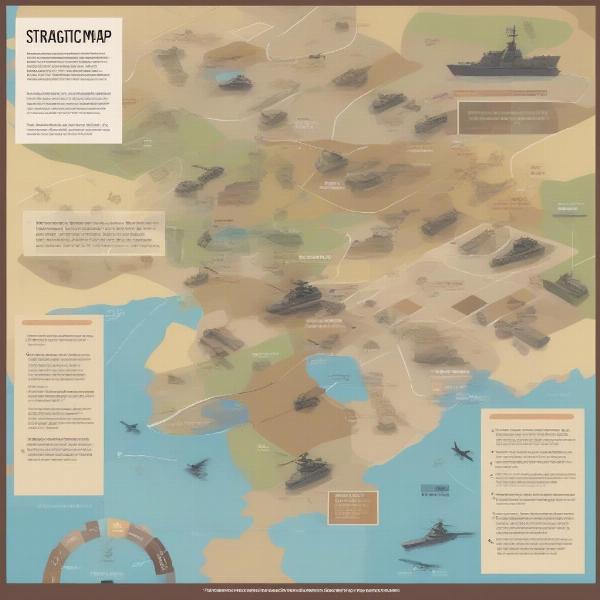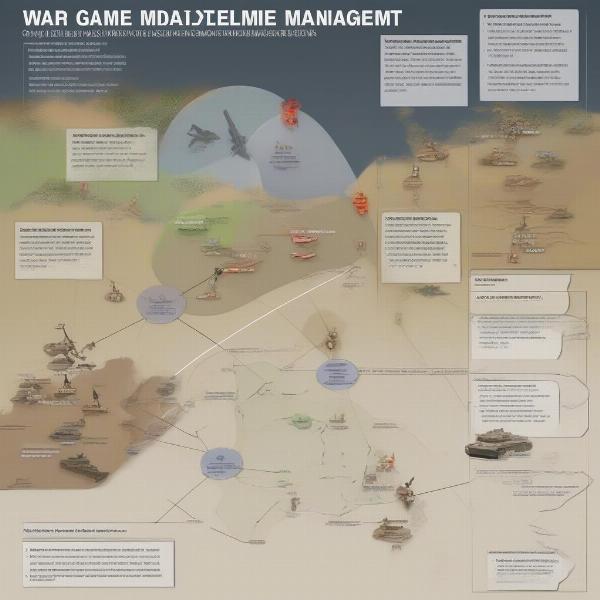Welcome to supremeduelist.blog, your go-to source for deep dives into the world of gaming. Today, we’re tackling a subject that resonates with many competitive players: How To Win War Games. Whether you’re engaging in historical simulations, futuristic battles, or strategic board games, victory often hinges on a combination of tactical prowess, strategic foresight, and an understanding of game mechanics. This article aims to equip you with the knowledge and insights necessary to improve your win rate.
The core of this guide revolves around understanding the multifaceted nature of war games. We’ll break down essential elements, from managing resources and formulating effective strategies, to adapting to dynamic situations and exploiting enemy weaknesses. We’ll explore crucial aspects of preparation, in-game decision-making, and post-game analysis. This isn’t just about being aggressive; it’s about outmaneuvering, outthinking, and ultimately outlasting your opponents. We will also explore how elements like those found in wwe survivor series war games can be applied to any gaming strategy.
Mastering the Fundamentals of War Games
Winning in war games isn’t just about luck; it’s a calculated process that begins with a solid understanding of the game’s rules and mechanics. Every war game, regardless of its genre or complexity, has a set of core principles. Before diving into intricate strategies, you must master these basics.
Understanding Game Mechanics and Rules
Before you even consider a strategy, you have to know the ins and outs of the game you’re playing. What are the win conditions? How do resources work? What are the different units, and what are their strengths and weaknesses? Are there any hidden rules or mechanics that aren’t immediately obvious? A thorough knowledge of these aspects forms the foundation of any successful strategy. You’d be surprised how often overlooking these details can lead to losses, even for experienced players.
Resource Management: Fueling Your War Machine
In nearly every war game, resources are critical. Whether it’s gold, minerals, fuel, or even population, managing your resources effectively is key to winning. A common mistake is to focus solely on offensive units without investing in resource generation. A balanced approach ensures you can sustain your war efforts throughout the game. Knowing when to expand, when to consolidate, and when to invest in upgrades is a crucial skill that directly impacts your game.
Unit Composition: The Right Tool for the Job
Understanding unit composition is another cornerstone of success in war games. Every unit has its role, and mixing them effectively can create a strong fighting force. A balanced force often includes a mix of melee, ranged, support, and perhaps even specialized units like tanks or air support. Sending only one type of unit into battle can quickly lead to a crushing defeat if the enemy has units that counter it. For example, in games where flanking is a strategy, you should always have some quick units in your squad.
Strategic Planning and Tactical Execution
Once you understand the game’s foundations, you must craft strategies and execute tactics. Strategy is the overall plan you set at the beginning of the game, while tactics are the actions you take during combat or specific situations.
Developing Effective Long-Term Strategies
A good strategy accounts for the long-term implications of your choices. Do you plan to be aggressive from the start, or will you focus on economy and build up slowly? Do you prefer overwhelming force or surgical strikes? Your strategy should be fluid enough to adapt to changes in the game, but it’s still important to have a guiding principle. Thinking ahead and predicting your enemy’s moves is the hallmark of a successful war game player.
 Strategic Planning in War Games
Strategic Planning in War Games
Tactical Adaptations: Thinking on Your Feet
Tactics are about how you execute your strategy in the short term. No battle plan ever survives contact with the enemy, so your ability to adapt your tactics during combat is crucial. This involves using the terrain to your advantage, exploiting enemy weaknesses, and reacting swiftly to changes in the battlefield. A strong understanding of unit counters and strategic deployment is key to winning battles in every war game.
Exploiting Enemy Weaknesses and Vulnerabilities
Every player has weaknesses, and these vulnerabilities are often the key to victory. Maybe your opponent is overly aggressive, neglecting their defenses. Perhaps they over rely on a specific unit type, leaving themselves open to counters. Being observant and identifying these weaknesses allows you to shift your tactics and take advantage of their shortcomings. As you learn more, you might find elements similar to army men world war game which will highlight the importance of scouting and intel.
The Mental Game: Mindset and Adaptability
War games aren’t just about mechanics and strategy, they are also about the mental fortitude to stay focused and keep adapting. The best players in any war game possess a strong mindset that allows them to thrive under pressure.
Maintaining Composure Under Pressure
War games can be tense, especially in close or critical situations. Maintaining composure, avoiding rash decisions, and staying focused are vital. Emotions can cloud judgment, leading to tactical mistakes that can cost the game. Developing a calm and calculated approach will always serve you well in the long run.
Adapting to Unexpected Situations and Dynamic Changes
Every war game involves unexpected events and changing situations. Perhaps the enemy deployed an unexpected strategy. Being able to quickly analyze new information and adjust your tactics is key to turning the tide. An ability to think fast on your feet might be just what you need.
Learning from Losses and Improving Your Game
No one wins every game. Even the best players face losses. The important thing is to learn from these defeats. What went wrong? What could you have done differently? This kind of post-game analysis will help you avoid repeating the same mistakes and will make you a better player in the next game. Understanding what strategies didn’t work against a certain opponent can be useful the next time you meet someone with similar tactics.
Advanced Strategies: The Path to Mastery
Once you have a strong foundation, you can start to delve into more advanced techniques that separate the average from the excellent players. These include manipulating your opponent’s strategies and mastering complex mechanics.
Bluffing and Misdirection: Playing the Mental Game
Playing a war game isn’t just about physical actions; it’s about the mental game, too. Bluffing, misdirection, and psychological tactics can throw off your opponents and create opportunities for you to strike. Making them think you’re going to act one way, and then going the other way can throw them for a loop. These mind games can be just as effective as brute force.
Advanced Unit Management: Micro-managing Your Forces
Micro-managing units can be the difference between a close loss and a victory. This entails precise control over individual units, optimizing their attack patterns, and making the most of each and every one. Learning to control multiple squads can be just what you need to win more complex battles.
Counter-Strategies and Adapting to Meta
War games often have a “meta,” which refers to popular strategies. The best players are not just good at playing within the meta, but they can also adapt to it. This means understanding common strategies and figuring out how to counter them. Similarly to buy this war of mine board game, you need to understand the current state of the game to effectively utilize the meta and counter the strategies.
 Advanced War Game Strategy Techniques
Advanced War Game Strategy Techniques
Utilizing the Terrain to Your Advantage
The terrain can be just as important as any unit. High ground provides an advantage for ranged units, while forests can offer cover for ambushes. Using the terrain to your advantage can help in making the most of your troops, and minimize their exposure to enemy fire.
Understanding the Economy and Tech Trees
Economic growth and tech upgrades are as important as combat strength. Knowing which upgrades to prioritize and when is essential for maintaining a long term advantage. A technological edge or an economic advantage can often mean the difference between victory and defeat.
Practical Tips for Success
Here are some practical tips that can help elevate your game and improve your chances of winning:
- Practice Regularly: Consistent practice is key to improving your skills and reactions. You should always try to play regularly to maintain your edge in war games.
- Watch Professional Players: Studying pro players can offer valuable insights into advanced strategies and tactics. It’s also a great way to see some creative techniques in action.
- Analyze Replays: Watching your own replays can show you where you made mistakes and how to avoid them in the future. You can also try to review replays of professional games.
- Join Gaming Communities: Engaging with gaming communities is a great way to learn from other players. It is also a great way to find out what strategies work, and what doesn’t.
How do I start learning war games?
Start with simple games to learn the basics, then gradually increase difficulty. Watch tutorials and gameplay videos. Start simple, with games similar to star wars bop it game but then move on to more complex games to refine your techniques.
What is the best mindset for winning in war games?
The best mindset is to stay calm, adapt quickly, and learn from your mistakes. It is important to stay focused and avoid getting carried away by your emotions in war games.
How do I manage resources effectively in war games?
Balance resource collection, production, and upgrade investments. Prioritize resource gathering based on game needs and your strategic goals.
What’s the importance of unit composition in war games?
A balanced unit composition is key to adapting to various threats and maximizing your offensive and defensive potential. Use a diverse unit strategy to ensure you can adapt.
How do you adapt to an unexpected situation in a war game?
Take a breath, reassess the situation, and adjust your tactics quickly. Don’t panic, and be prepared to react to whatever your opponent throws at you.
Conclusion
Winning in war games is a blend of strategic planning, tactical execution, and mental resilience. It’s not just about being aggressive or having the fastest reaction time, it’s about understanding the game, thinking ahead, and adapting to new challenges. It is a complicated game of wits. By mastering the fundamental elements, refining your strategies, and cultivating the right mindset, you’ll greatly increase your odds of victory. For more insightful analysis and expert guides, keep checking out supremeduelist.blog. We’re here to help you dominate every game you play, much like in the lying game ruth ware, where outsmarting your opponents is critical. Now, it’s your turn to apply these insights, sharpen your skills, and conquer the virtual battlefields that lie ahead!
Leave a Reply